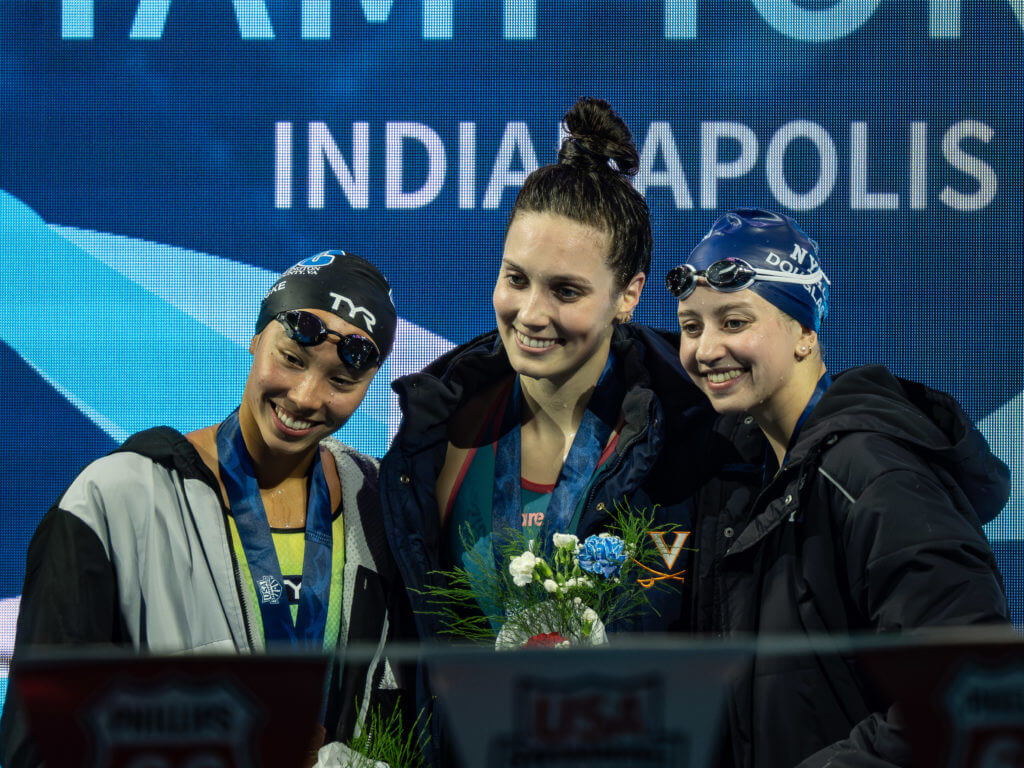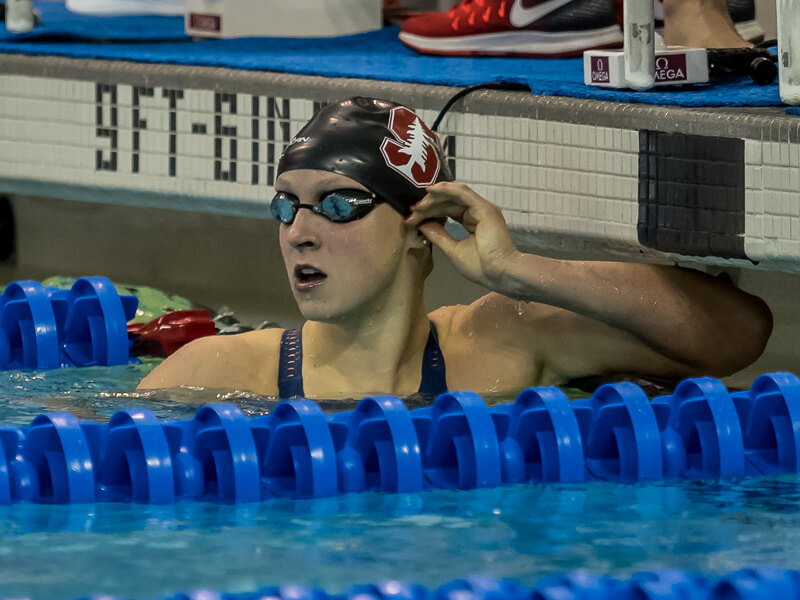Remember, NIL Rights Have Been Huge Benefit for Swimmers

Remember, NIL Rights Have Been Huge Benefit for Swimmers
The current era of college sports in the United States is one of player empowerment, with athletes now eligible to capitalize on and monetize their name, image and likeness (NIL) rights. Plenty of fans have openly maligned NIL and the rise of the transfer portal, allowing athletes to move from one university to another without sitting out a full season, as a cause of rot within athletics.
Those playing for money, the thinking goes, lack the passion and dedication that make interscholastic sports so great. Of course, cash has been the driving force in college football for decades, with everyone except the players benefitting, so perhaps calling college sports “amateur” was a stretch long before NIL. But that’s a conversation for another day and space.
In a high-profile Orange Bowl matchup Saturday afternoon, the University of Georgia football team annihilated Florida State by a score of 63-3. The Seminoles had been snubbed from the College Football Playoff despite an undefeated record and ACC Championship, but they were outclassed by a Bulldogs team that also harbored national-title hopes prior to a loss in the SEC title game.
Florida State’s blowout loss was largely chalked up to missing players because of injuries, transfer portal entrances and opt-outs, with players choosing instead to prepare for the NFL Draft. Many opposed to NIL and the transfer portal used stunning score used the Orange Bowl as evidence for their beliefs. According to The Sun, the game prompted ESPN play-by-play announcer Joe Tessitore to comment, “The business of college football, the infrastructure of college football, is broken,” while Georgia coach Kirby Smart said, “People need to see what happened tonight, and they need to fix this.”
We’re not going to weigh in one way or another on the hot-button issue of the problems with college football. This is a swimming-focused publication, after all, so what is the connection to the pool? Even though the addition of NIL money to college swimming has been on a much smaller scale than in high-revenue sports like football and basketball, the landscape sport has changed.
But two-and-a-half seasons in, it’s hard to argue that NIL has been anything but a benefit for swimming.

Katie Ledecky gave up professional opportunities after the 2016 Olympics so she could compete at Stanford — Photo Courtesy: Peter H. Bick
Consider the cases of Missy Franklin, Katie Ledecky, Lilly King and Simone Manuel, a quartet of American swimmers who won individual Olympic gold as teenagers or, in Manuel’s case, a week-and-a-half after her 20th birthday. All four were amateurs at the time, Franklin and Ledecky at the 2012 London Olympics and then Ledecky, King and Manuel four years later in Rio de Janeiro.
After their standout performances, all four chose to maintain their college eligibility, choosing to swim at least two additional years of NCAA competition each rather than accepting potentially life-changing money from sponsorships. Certainly, the money going to swimmers is a tiny fraction of what high-profile college football players can bring in, but at the height of their popularity, these four chose the experience of college swimming over the cash.
Sure, Franklin, Ledecky, King and Manuel would all would return to the Olympic level as professionals, and they have each made substantial income as professional swimmers. But all of them had their finest Olympic moments as teenagers; only Ledecky won gold in her Olympic appearance as a professional while Franklin, King and Manuel each struggled in their second Games.
Men’s swimmers, meanwhile, typically did not lose out on the same level of earning as their female counterparts, but Ryan Murphy maintained his college eligibility after sweeping in the backstroke events at the 2016 Olympics while Caeleb Dressel was still an amateur after winning seven gold medals at the 2017 World Championships.
Now, the current generation of top swimmers, particularly on the women’s side, does not have to make that decision. Thanks to the NIL rules adopted in time for the 2021-22 collegiate season, standouts from the Tokyo Olympics could set up sponsorship deals while retaining their eligibility.
Lydia Jacoby could capitalize on her 100 breaststroke gold medal while fellow Olympic medalists Regan Smith, Torri Huske, Erica Sullivan, Kate Douglass, Alex Walsh and Emma Weyant all set up deals, allowing them to make the most of their big moments while preserving their college swimming hopes. Claire Curzan and Phoebe Bacon were among the other beneficiaries from the Tokyo team. Carson Foster could earn income as he advanced his career during his college years, and even high-school-age swimmers, like Thomas Heilman, have been able to earn money.
Meanwhile, less-accomplished swimmers who will never make an impact internationally or turn professional have a chance to earn money through local opportunities like signing autographs or partnerships with business. These are rarely news-making deals but certainly consequential for these swimmers trying to earn some extra spending money during college.
Football drives decision-making in college sports, and some fans have taken issue with how NIL has changed the sport, but in swimming, this change has provided an opportunity for swimmers, especially female swimmers who excel as teenagers, to reap what they deserve without consequence.



